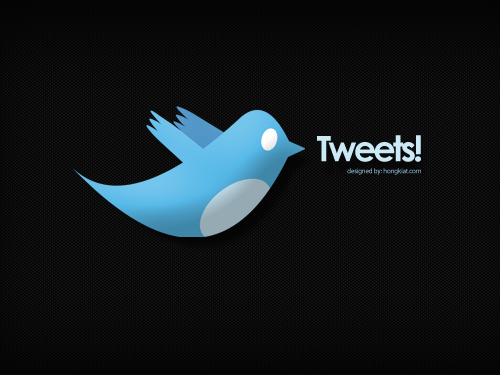
Making fun of Twitter is easy. The product's name is childish and the parlance -- "twitterverse," "twhirl," "tweet" -- even more so. And the idea of updating people on your personal life in 140 characters or fewer is self-indulgent at best. ("Eating a sandwich, boy it tastes good"? Or, "Landed at the airport, can't wait to party"? Who cares.)
However, I'm one of Twitter's biggest converts because of its genuine practical and business applications. The Times had a nice piece last month about ways it's being used: organizing political and consumer protests, live feed of a surgery and an application that documents each time a baby kicks. It's no surprise that at least 15 percent of all Twitter users work in P.R. or real estate. I also think politicians can productively harvest Twitter, not only for promoting their agenda, policy and unfiltered spin cycles, but also just to let people know where they are physically and what they're doing each day. (Writing an update takes two minutes maximum, so not having the time is no excuse.) I've already seen a few public officials doing this and think it's incredible, almost like a 21st-century variation on transparency, because we know how it is they spend their days and our money.
And, of course, there are newspapers, who might benefit the most. The industry's broadest lesson the past three years is media can no longer control the platform and compel news consumers to consume how and when they want, i.e. the printed page, each morning. The news producer has to go out and seek the reader. Twitter is about as simple a way to do this as possible. Posts, again, take two minutes and, for 140 characters, have a few useful categories: breaking news updates, summaries of and links to a story, and glimpses into what's happening in the newsroom, such as which reporters are headed where and who's stopping by for an interview. (If celebrities of all stripes can use Twitter [and the Internet in general] to fly over the media's filter, why not weaken the newsroom's filter, too?) All of the above stoke interest in a paper's stories, while personalizing the staff and operation, which drives people to the homepage, aka where a newspaper makes money online.
Hopefully Twitter starts to make money soon, without drastically changing its content/mission, or finds a buyer who knows how to it and is willing to support its losses. (Apple is reportedly the latest to be interested in buying it, though Gawker's sourcing appears weak, as do most things about that site.) It's one of the few things I like about about the era of always being plugged in.
Update: Matt Bai, in a recent essay in the Sunday Times magazine, has a compelling argument for why Twitter shouldn't be adopted by Washington's political class: In an era where politics is defined by high-pitched, immediate reacting to ideas rather than the ideas themselves, instead of the much more valuable reasoned, deliberate compensation, Twitter does nothing to help.
No comments:
Post a Comment